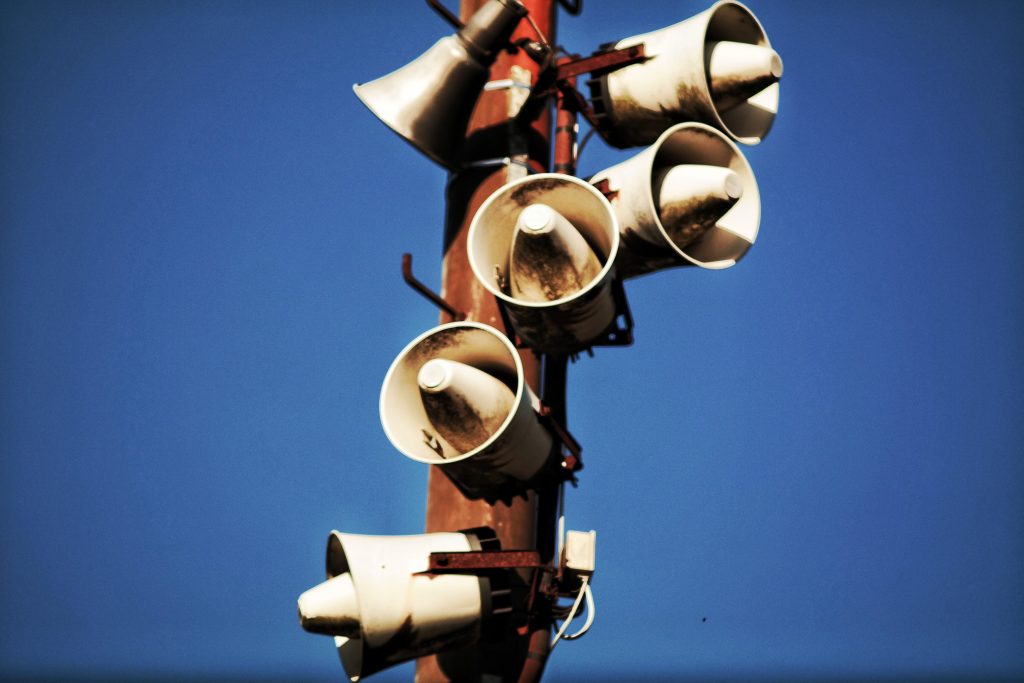Hearing is defined as “the act of perceiving sound“. It is involuntary, you hear car engines roaring, birds chirping, voices of people conversing in the distance. It is mostly unintentional. The hearing is a function.
Listening can be defined as “to give attention with the ear; attend closely for the purpose of hearing; give ear.” It is a voluntary action. One listens to their teachers in class, listens to their parents, their friends. Listening is a skill.
We often mix up these two words; thinking that the latter is the same as the former.
A Psychologist or a student of Psychology will tell you what an essential role listening plays in their jobs, particularly therapists and counselors, but is that as far as the application of this skill goes? Shall we just leave it to the professionals to do so?
Expressing your thoughts, emotions, and concerns to someone or something is known as venting. It’s an incredibly helpful and healthy thing to do. Keeping our thoughts bottled up and to ourselves can be incredibly damaging to our mental health, and that can have terrible consequences.
However, as important as it is to vent, it is as equally- some might even argue that it is more- important for us to be good listeners. Listening is a powerful and invaluable skill that is a crucial part of basic human communication and connection. Sadly, it is also a much-underrated one.
Listening is a powerful and invaluable skill that is a crucial part of basic human communication and connection. Sadly, it is also a much-underrated one.
If we apply good listening skills to our daily lives, believe me, life would become a little easier. For you learn more about people and it teaches you to become more compassionate and compassion is highly encouraged in our beautiful religion.
Although I am no expert [far from one] I have gathered, what I think are some basic yet essential, Do’s and Don’ts of listening. Hopefully, we all benefit from it.
DON’T
- MAKE ASSUMPTIONS.
We often begin to form our own judgments and ideas about certain things based on the little information we have gathered from the speaker, who has not yet finished their account. Once we have made assumptions, it is difficult to have a purposeful conversation with someone as we believe that we already know what the person is trying to tell us and so we don’t really ask questions or engage, assumptions can also lead to interruption. Hence, it is best to stay away from it.
- INTERRUPT
Wait for the other person to finish speaking before voicing yourself. Interrupting someone while they are speaking is disrespectful and can leave them feeling frustrated and hurt. So practice patience.
- JUDGE
We are all human beings and making mistakes is inevitable. Thus, it is never our place to pass judgment on someone else, no matter what they are saying. Being quick to judge can make us react harshly or even break someone’s trust in us. If you are really concerned about the other person; remain calm and politely and discreetly advise them.
- JUST WAIT FOR YOUR TURN TO SPEAK
Do not let your mind be occupied with thoughts of what you’re going to say when it is your turn to speak. By doing so, you lose focus of what the other person is saying and you may just end up hearing them and not really listening.
DO
- STAY IN THE PRESENT.
Be fully aware of what’s going on around you and don’t let your thoughts drift you away. This is one of the keys to listening. It is easy to let our thoughts get louder and the speaker’s voice gets smaller when as time passes and we only end up half-hearing what the other person is saying which can lead to confusions or misunderstandings. So clear your head of all your thoughts and let it only hear the words of the speaker.
- BE AWARE OF YOUR BODY LANGUAGE.
Body language is incredibly important; we may not always realize it but our body language sends messages to the other person. If we’re not careful of our body language, the other person may feel uncomfortable. One should maintain eye contact with the person while listening, make sure they are facing them and have a good posture. Slumping, resting our face on our hands, looking around, yawning etc such actions are examples of poor etiquette and as Muslims, we should do our best and display the best of manners.
- GET RID OF ALL DISTRACTIONS
Turn off the TV, close the book, and put your phone and other distractions away when you’re listening. This makes the other person feel valued and let them know that you care and are interested in listening to them.
- EMPATHISE AND BE OPEN
This is not the same as sympathizing. Sympathy is when you share the same feelings with someone. Empathy is when you put yourself in someone else’s shoes to understand someone else’s perspective by keeping an open mind and being sensitive to their feelings and opinions.
The Prophet Muhammad ﷺ said: “A Muslim is the brother of a Muslim who does not oppress him nor hand him over, and who is after the need of his brother, Allah will be after his need, and who relieves a Muslim from the plight of distress, Allah relieves him from one of the plights of distress of The Day of Resurrection, and who enshrouds a Muslim, Allah will cover him on The Day of Judgment“[Sahih Al Bani 7988],
- THINK BEFORE YOU RESPOND.
Ask yourself how you would want to be responded to if you were in the other person’s position and whether your response is appropriate and considerate; then act accordingly. Speaking without thinking can have unpleasant results. The other person can get offended or hurt, which may weaken their trust within you and you may be left with the feeling of regret.
- HAVE PATIENCE
Listening can be difficult and tiring, we have a right to speak and express ourselves but we may not always get the chance to do that and so it can cause a little annoyance at times. However, we should remember that it is also very rewarding to be able to listen to someone talk about their day or their problems, or experiences for if we do it for the sake of ALLAH SWT we will be rewarded.
I would like to end this list with one last point; one that I believe to be the most important point so far.
- HAVE THE RIGHT INTENTION
Listening with the intention of receiving many praises and thanks and to have other people think better or highly of you is not only wrong but also a wasteful thing to do. Nothing that is done purely for the pleasure of other people can have a fruitful outcome nor can it give us contentment.
So have the right intention, to please Allah swt and earn a reward.
Prophet Muhammad ﷺ said: “Allah does not accept any deed except that which is done only for Him and to seek His Countenance.” [Narrated by al-Nasaa’i, 3140; classed as saheeh by al-Albaani in al-Silsilah al-Saheehah, 52.]
May Allah swt accept all our deeds and acts of worship and may He make us the coolness of the eyes of our loved ones and help us become better Muslims and grant us the strength, character, and wisdom to be able to help others. Aameen.
The most basic and powerful way to connect to another person is to listen. Just listen. Perhaps the most important thing we ever give each other is our attention.
Rachel Naomi Remen
__________________________________________________________________________________________________________
References
hearing. (n.d.). Dictionary.com Unabridged. Retrieved January 02, 2016 from Dictionary.com websitehttp://dictionary.reference.com/browse/hearing
hearing. (n.d.). Dictionary.com Unabridged. Retrieved January 02, 2016 from Dictionary.com websitehttp://dictionary.reference.com/browse/listening
Breazeale, R. (2016). Being A Good Listener. [online] Psychology Today. Available at: https://www.psychologytoday.com/blog/in-the-face-adversity/201111/being-good-listener [Accessed 2 Jan. 2016].
Chua, C. (2011). 7 Powerful Tips To Becoming a Better Listener. [online] Dumb Little Man. Available at: http://www.dumblittleman.com/2011/08/7-powerful-tips-to-becoming-better.html [Accessed 2 Jan. 2016].
Community.jamesonmanagement.com, (2016). Communicating and Listening with Body Language by Cathy Jameson, PhD | Jameson Client Community. [online] Available at: https://community.jamesonmanagement.com/articles/2013/02/25/communicating-and-listening-body-language-cathy-jameson-phd [Accessed 2 Jan. 2016].
Davenport, B. (2015). How To Be A Good Listener. [online] Live Bold and Bloom. Available at: http://liveboldandbloom.com/02/relationships/how-to-be-a-good-listener [Accessed 2 Jan. 2016].
Skillsyouneed.com, (2016). Listening Skills – The 10 Principles of Listening | SkillsYouNeed. [online] Available at: http://www.skillsyouneed.com/ips/listening-skills.html [Accessed 2 Jan. 2016].



